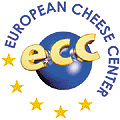Todays’ milk market situation is not only extremely challenging for the farming community, but also for the milk processing companies. Under these circumstances, we welcome the initiative of the Luxembourg Council Presidency, Minister Fernand Etgen and the French Minister of Agriculture, Mr Stéphane Le Foll to schedule a special Agricultural Council meeting on milk and dairy on 7 September in Brussels.
The dairies in the EU, cooperatives as well as privately owned companies, are working tirelessly every day to market milk and dairy products in Europe and globally at the best price.
We are partnering on a daily basis with 700.000 dairy farms across Europe and together with our 300.000 employees in the dairy industry we all assure premium quality dairy products ‘made in Europe’ while remaining the economic backbone of rural Europe, especially in so-called less favoured areas.
The milk market situation today is characterised by
– moderate demand on the internal market
– stressed markets globally, characterised by lower purchasing in China and exacerbated by the prolonged Russian import ban
– less demand from other third countries.
We all agree on the favourable mid- and long term outlook for the European dairy sector, however the specificities of the dairy sector have to be taken into account when assessing todays’ market situation: steady milk production and hence the low elasticity of the milk supply in Europe leads to highly reactive markets whenever the demand side is disturbed.
Today’s dairy market difficulties arise from weaker global demand coming on the back of a sustained period of strong global supply given the favourable production conditions in the major milk producing regions of the world.
That is the reason why a stable internal market and predictable trade relations with third countries are of crucial importance especially for the milk sector, the dairy farmers and their milk processors.
Stability is also needed when it comes to the application and implementation of the European agriculture and dairy policy. National measures must be aligned at European level. Only a coordinated EU level approach will help to improve the sentiment of weak dairy markets.
Against this background, we ask the Council of Agricultural ministers to focus their discussion on three main priorities for the dairy sector: market orientation, market access and policy coherence.
1. Market orientation
Market orientation was a political process that started in 2003, with the objective to become a competitive sector at the global level and the liberalisation of the milk production was the last step.
Through the policy reforms and the efforts of the dairy sector, the milk producers and their milk processors, the European dairy sector has become a global competitive sector.
The European milk market is now closely linked to the world market which offers great opportunities to the EU dairy sector as a whole.
Milk markets have known price up- and downturns over the last decades. The public volume management system (‘EU milk quota’) did not limit these variations. From now on, similar policies such as supply management are not suitable in the context of the current globalised milk market.
The progress in terms of market intelligence so far made by the EU Commission is impressive. The Milk Market Observatory has proven useful to provide all necessary market information to dairy operators, and has to be kept to this very role. Operators can use its wide range of data to voluntarily engage into flexibility and adaptation to market signals.
External factors impacting the global milk supply (weather conditions, feed prices, disease outbreaks, quality issues in third countries, etc…) or the global milk demand (Russian ban, Chinese purchasing policies, etc…) remain uncertain and difficult to predict.
That is the reason why we will inevitably see continued price fluctuations (‘volatility’) in the future.
Therefore, it is appropriate to take the political decision to keep and make a more efficient use of the residual arsenal of market support tools available for the EU Commission to address the extremes of price volatility.
The EU Commission has shown itself to be responsive and flexible, when it comes to private storage aid (PSA) or public intervention periods and its proposed initiatives in these areas are welcomed.
We would like to repeat the call from the whole dairy sector upon the EU Commission since September 2014 to reconsider the intervention price levels that have been fixed in a completely different environment back in 2007. As such, we do request the Council of Ministers to discuss the review of intervention prices.
Additionally, during the current difficult time for the whole sector, dairy producers in several countries have to pay high super-levy for the last quota year, which is a heavy burden for the dairy sector in these countries. The super-levy does not have any effect on the market, so the money should be returned to the dairy sector as a help during these times.
2. International market access
The specificities of the dairy sector have also to be taken into account when negotiating trade agreements. Potential free trade agreements with strong dairy leaders such as New Zealand must be refrained as it could hamper the competitiveness of the EU dairy sector.
The EU dairy sector has in many parts of Europe good climate conditions for milk production, a highly motivated and trained farming community and a competitive milk processing industry with world leaders and innovative SMEs.
Stable, predictable trade relations with third countries are of crucial importance especially for the milk sector, both dairy farmers and their milk processors.
It seems to us unacceptable that our dairy products cannot compete on a level playing field with products from other milk exporting countries, who have trade agreements with major importing countries that include far lower import tariffs for dairy. Therefore, we request that the Commission commits a dairy specific study on import conditions that EU exporters and third countries exporters face in important third country markets.
Furthermore, the EU Member States have not yet reached an agreement to open the way for a harmonised EU intra-trade certificate for dairy products, which would be a rather simple, cost free way to facilitate exports to third countries, especially for SMEs.
3. Domestic market and policy coherence
We share the Commission’s favourable mid- and long term dairy outlook, which is based on the future global demand development.
Nevertheless, about 85% of the milk produced in the European Union is traded in the EU internal market and is appreciated by the 500 million EU citizens.
Within the internal market, dairy faces more and more policy challenges, many of which are positioned outside the remit of the Common Agricultural Policy or the portfolio of DG AGRI.
A coherent policy support for dairy has to translate into the acknowledgment of the specificities of our sector and a support through all European and national policies. For instance through the:
– Consistent protection of dairy terms and indications, as laid down in the sCMO.
– School Milk Scheme where the regular harmonised scheme should offer a broad range of dairy products (keeping the current eligible products which include flavoured/chocolate milks and fermented milks/yoghurts with fruits).
– Origin labelling: voluntary origin labelling of milk and dairy is widely appreciated and used as a marketing tool. In that context, any further legislation or legislative constraints will lead to higher costs which will hinder the competitiveness of the sector.
We trust the Council, under the Luxemburg Presidency, to focus on the three main priorities for the dairy sector: market orientation, market access and policy coherence.






















Messe
Seminare
Termine
Weiterbildung
sonstige Veranstaltung